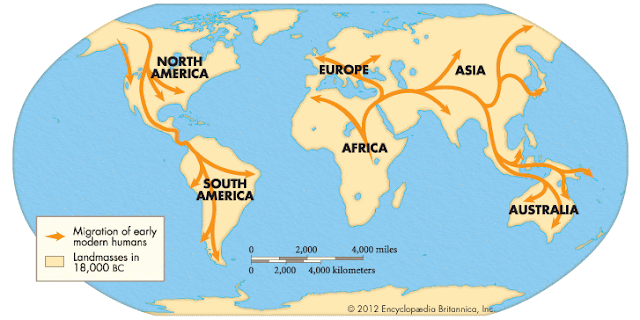This is a blog for the ACC students of grade 5 - 2017. This blog is managed by Ms Aurelia.
Friday, September 29, 2017
Vocabulary of the Week
Geography Resources
Weekly Plan
Please make sure to check the resources section, which will be updated shortly with new Geography materials for students to prepare for this week! Thanks in advance.
Homework
Homework for California: I will give the quiz back on Sunday, you are to fill what you weren't able to do on last weeks quiz for Monday. t will count as a homework grade, your chance to make up for it!
Saturday, September 23, 2017
Geography: Human Migration Maps
 |
| Click https://www.nationalgeographic.org/projects/out-of-eden-walk/media/2013-03-the-greatest-walk/ for full size map. |
You can find the early human migration map on National Geographic here: https://genographic.nationalgeographic.com/human-journey/ and https://genographic.nationalgeographic.com/human-journey/
Below is a very simple world map of the early human migration:
Vocabulary of the Week
Early Human Migration
How do fossils get made?
Research Homework
Please research one or two of the animals we listed in class in your new research book (A4 format) as well as information about Lucy. Bonus: What city was she discovered in?
Make sure to take notes. DO NOT COPY from the Internet. Read the information then write what you understood.
Please make sure you watched the videos on the Blog and learnt the vocabulary in the Vocabulary of the Week Section.
Thanks and good luck!
Thursday, September 21, 2017
Monday, September 18, 2017
Human Evolution
What can you learn from ancient skeletons?
Early Humans Vocabulary
Prehistoric:
| part of speech: | noun |
| definition: | any member of the family of two-legged primates that includes all humans and their ancestors. |
| related words: | ape |
Homo sapiens:
| part of speech: | noun |
| definition: | the scientific name for human beings or for mankind in general.
|
| related words: | human, humanity |
Neanderthal:
| part of speech: | adjective |
| definition: | designating an early form of human of the Pleistocene period. |
Cro-magnon:
| part of speech: | noun |
| definition: | a Caucasoid type of human that lived in Europe from about 60,000 B.C. to about 10,000 B.C. |
Primate:
| part of speech: | noun |
| definition: | any animal in the category of mammals that includes humans, monkeys, apes, and some smaller, simpler animals. Most primates have large brains and flexible hands. |
Mammal:
| part of speech: | noun |
| definition: | any animal that has hair and feeds its babies with milk from the mother. |
| part of speech: | noun |
| definition: | the stage of human culture when stone tools and weapons were made and used. The Stone Age dates from about two million B.C. to about 3,500 B.C. |
Ice Age:
| part of speech: | noun |
| definition: | any object made by human beings. |
| related words: | antique |
Theory:
Archaeology:
Wednesday, September 13, 2017
New York
New York I congratulate you on keeping your classroom nice and tidy! Keep up the good work, and get ready to work next week.
Amazing Adham
Awsome Assem
Fun Farah
Fabulous Fatma
Fantastic Fayrouz
Great Georgiana
Kingly Kirolos
Masterly Mohammed
Nice Nadia
Notorious Nouf
Obedient Omar
Polite Pragyan
Super Salma
YouTube Youssef (former energetic)
Zealous Zoya
California Class
This week was a lot of fun! But now is time to start working! California you really need to all take care of your classroom, let's hope next week will be better!
Action Al Julanda
Creative Carl
Dancing Dana
Explorer Eyad
Hopping Hisham
Huge Hussein
Joking Jake (aka Hussein)
Kind Kirolos
Laughing Lilia
Magical Maryam
Mad Minem
Modest Mohamed
Monstrous Mohamed
Negative Nour
Oriental Omar
Sparkling Soulaf
Tough Turkie
Saturday, September 9, 2017
Resources
Once upon a time... The Explorers:
Neanderthal man
Vocabulary of the Week
In the meantime you can check this cool video introducing vocabulary on our first chapter about Early Humankind.
Student of the Week
Homework
Wishing you good luck for the year!



